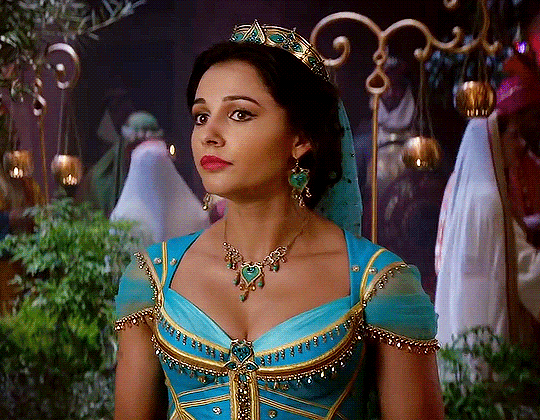Middle Eastern Women in Media
With the recently released trailer for the revamped version of Mulan, I was reminded of the live-action Aladdin Disney released a while back. Oddly enough the actress playing Princess Jasmine is not Middle Eastern, but rather of Indian and British descent. I had a difficult time taking this in. How is it that one of the world’s biggest media companies was not able to find a single Middle Eastern actor to play the role of Princess Jasmine. Although I am not trying to tear down the actors that they have selected, I did find it disheartening to not see this representation as a second-generation Iranian woman myself. One could liken it to something similar like casting a non-Asian for Mulan, a non-Native American for Pocahontas, or a non-African American for the Princess and the Frog. Fans would probably vocalize frustration with Disney. So, why does it seem to be okay for this to happen when it comes to Middle Eastern culture?
After doing a bit of research, I even found that in response to the criticism, some people argue that the story of Aladdin did not specify its roots in Middle Eastern culture, as it could also take place in an Asian culture. I found this claim even more offensive. Even if the story of Aladdin was an ancient folk tale, Disney’s version took that folk tale and completely turned it into a Middle Eastern tale. In fact, there are clear references to Middle Eastern culture in the recent movie. In the song “Friend Like Me,” the genie refers to Aladdin as a “shah,” which is an Iranian (Farsi) word meaning King, or the reference to baklava which is known to be a Middle Eastern or Mediterranean dessert. But, after initial experiencing a wave of frustration, however, I began to think…am I better off this way?
I personally cannot think of a single Middle Eastern woman or man in pop culture that I look up to, more specifically Persian. In my youth, I felt that this was a disadvantage. But as I’ve gotten older, I have come to realize maybe it’s actually the biggest advantage I’ve ever had. I didn’t have the opportunity to have a role model to follow and aspire to be like, but I had something better: myself. Because I didn’t have someone to look up to, I was instead able to be my own role model and create my own rules. I didn’t have to follow a certain guideline of how a woman should act and should be, because I acted the way I wanted to act and was always true to myself. I didn’t have anybody to compare myself to. Instead, I built myself up on the foundation that I am a unique person with unique goals, aspirations and talents, and that in itself is a beautiful thing that needs to be celebrated. Who cares what other people think? I am me and that’s it.
I still do feel a tinge of distaste towards Disney, a multi-billion-dollar company, for not making it more of a priority to be true to the role they created by casting two Middle Easterners to play the roles of Aladdin and Princess Jasmine – for grouping together a mix of ethnically diverse people and making them “one.” But, in the end, it doesn’t matter. Disney will still end up making millions of dollars from this movie and probably won’t care that they weren’t more thoughtful in the cast they selected. What we need to learn is the importance of us as individuals to be more considerate of other individuals’ culture and ethnic backgrounds. Even more important is that we are also able to look within ourselves and our own cultural background and be proud of that without having to have a spokesperson or actor in Hollywood to represent who we are. When we don’t have that prominent person to champion or aspire to, we need to harness the power that comes from within and be that person for ourselves.
By Parinaz Kassemi
Hamline Grad Student, model, teacher & ice cream’s biggest fan.






